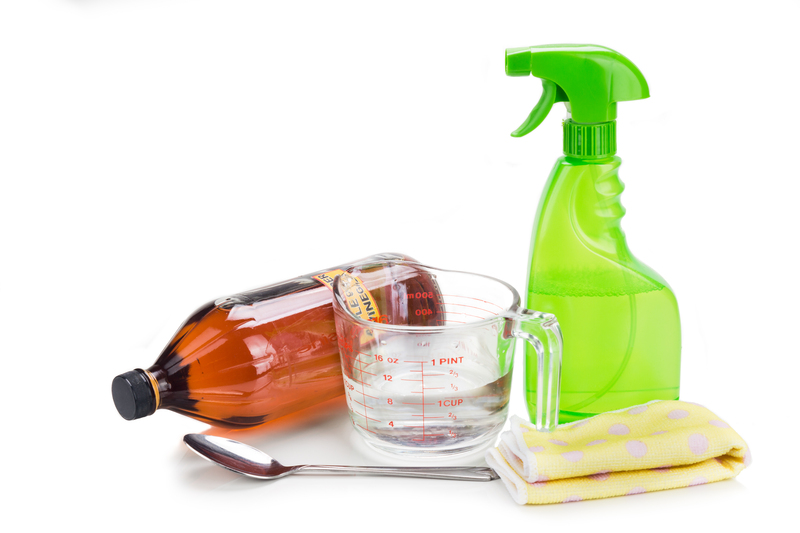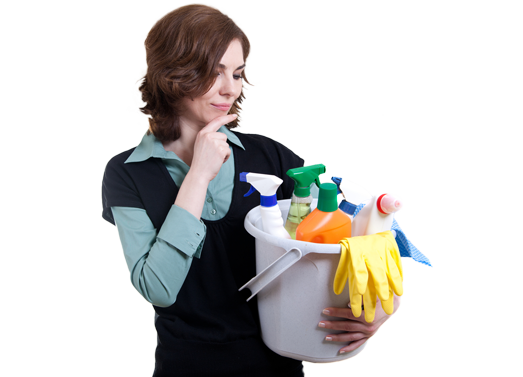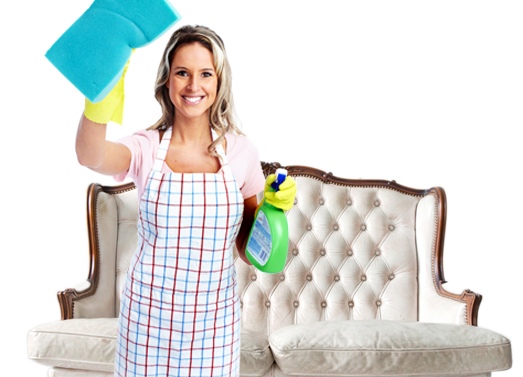Reclaim Your Fresh Living Space from Pet Odors
Posted on 28/06/2025
Reclaim Your Fresh Living Space from Pet Odors: The Ultimate Guide
Pets bring unconditional love, joy, and companionship into our homes. However, even the most beloved dogs, cats, or other furry friends can leave unpleasant pet odors that linger in your living space. Foul smells not only discourage you from relaxing at home but also make guests uncomfortable. If you're determined to reclaim your fresh living space from pet odors, this comprehensive guide will help you breathe easier while keeping your four-legged friends happy.

Why Do Pet Odors Linger?
Pet smells are persistent for several reasons. Animals have natural oils in their fur and skin, and these blend with sweat, saliva, and even urine to create stubborn odors. Additionally, accidents--especially from kittens, puppies, or senior pets--can seep into carpet fibers, upholstery, and even hardwood floors, making it hard to banish these smells fully.
- Pet hair and dander: These microscopic particles carry the signature odor of your animal and can settle on every surface.
- Urine and feces accidents: Even the best-trained pet may have accidents, especially in new environments or stressful situations.
- Saliva and drool: Some pets, like certain dogs, tend to drool more and leave traces of their saliva everywhere.
- Unwashed bedding or toys: Pet beds, blankets, and favorite toys can become odor magnets if not cleaned regularly.
Immediate Actions: Quick Fixes for Pet Odor Control
When you first notice a sudden pet odor in your living space, you can take immediate steps to neutralize the smell. Here's what you should do promptly to regain a fresh home:
Locate and Clean Up Accidents Immediately
- Find the source: Use your nose or even a black light to detect hidden spots, especially for cat urine which can be hard to trace.
- Blot, don't rub: Gently blot up liquids with paper towels to avoid pushing them deeper into surfaces.
- Neutralize with enzymatic cleaner: Special pet odor removers use enzymes to break down organic compounds, eliminating smells at the source. Avoid ammonia-based cleaners which can mimic the scent of urine and encourage repeat accidents.
Improve Air Circulation
- Open windows and doors to let fresh air flow through the house.
- Use fans to expedite the airing-out process.
Use Odor-Absorbing Materials
- Place bowls of baking soda or activated charcoal in affected rooms to absorb persistent odors.
- Try placing a dish of white vinegar (out of pets' reach) overnight--vinegar is excellent at neutralizing airborne smells.
Deep Cleaning Your Living Space to Remove Pet Odors
Once immediate concerns are addressed, it's time to invest in a thorough cleaning routine to keep your home smelling fresh and free of lingering pet odors. Here are comprehensive cleaning strategies that work:
1. Addressing Carpets and Rugs
- Vacuum regularly (at least twice a week) with a vacuum equipped with a HEPA filter to remove hair, dander, and dust.
- Steam clean: Rent or buy a carpet steam cleaner. Hot water extraction lifts embedded odors and kills bacteria.
- Baking soda treatment: Sprinkle baking soda liberally over carpets and leave it for several hours before vacuuming. Baking soda naturally absorbs and neutralizes smells.
2. Cleaning Upholstery and Fabrics
- Wash covers: Remove cushion covers, slipcovers, and throw blankets regularly and wash them in hot water.
- Use an upholstery cleaner: For fabrics that can't go in the wash, use pet-safe spray cleaners or a mixture of vinegar and water (spot test first).
- Sun-dry items: When possible, let cleaned fabrics dry outdoors in the sunlight, which helps eliminate odors.
3. Hard Floors and Surfaces
- Mop with vinegar solution: Mix 1 cup of white vinegar with a gallon of warm water to mop tile, linoleum, or sealed hardwood floors. Avoid vinegar on unsealed or waxed wood surfaces.
- Scrub baseboards: Pet odor can cling to baseboards. Use a damp sponge with a mild cleaner.
4. Wash Pet Bedding and Accessories
- Launder pet beds and blankets weekly: Use hot water and an unscented detergent. Add a cup of baking soda to the cycle for extra odor-busting power.
- Clean toys, collars, and leashes: Many toys are machine washable, but check tags. Soak sturdy items in warm water with a little vinegar.
Neutralizing Stubborn Pet Odors: Advanced Solutions
If ordinary cleaning doesn't give you the fresh living space you desire, step up your odor-fighting arsenal with these advanced tips:
- Professional deep cleaning: Hire professional carpet/upholstery cleaners specializing in pet odor removal to tackle severe or recurring issues.
- Ozone generators: These machines neutralize odors at the molecular level. Use with caution and always remove people and pets from the area during operation.
- Air purifiers: Invest in a HEPA air purifier with a carbon filter to trap pet odors, allergens, and dander continuously.
- Paint and seal floors: For persistent urine issues on hardwood or subflooring, clean thoroughly, then apply a sealing primer or odor-blocking paint.
Preventing Future Pet Odors in Your Living Space
Prevention is the most effective way to maintain a fresh-smelling home. By adopting a few key habits, you can stop pet odors before they begin.
Keep Pets Clean and Groomed
- Regular baths: Bathe your pets with species-appropriate shampoo as recommended by your vet.
- Brush daily: This reduces shedding and the spread of dander around your home.
- Check ears and teeth: Infection or dental issues can contribute to body odor.
Litter Box and Potty Area Maintenance
- Scoop daily: Cat litter boxes should be scooped at least once a day and completely cleaned with soap and water weekly.
- Switch to odor-controlling litter: Clumping, silica, or charcoal-infused litters provide extra protection.
- Outdoor potty areas: Regularly pick up waste from the yard and hose down areas where pets eliminate.
Air Quality and Home Maintenance
- Change HVAC filters frequently: Pet hair and dander can clog air filters, worsening indoor air quality.
- Keep windows open when possible: Regularly airing out your home prevents odor buildup.
- Consider houseplants: Certain varieties, like peace lilies, spider plants, and Boston ferns, can help absorb airborne smells (always check if a plant is safe for your pet before bringing it home).
Pet Odor Myths: Separating Fact from Fiction
There are many misconceptions about dealing with pet odors in your home. Let's clear up some common myths to help you choose the most effective solutions:
-
Myth: "Air fresheners and scented sprays will fix pet smells."
Fact: Air fresheners only mask odors temporarily. The source must be cleaned and neutralized to truly reclaim your fresh living space. -
Myth: "Once an odor is gone, it's gone for good."
Fact: If not treated properly, pet odors can return, especially in porous materials like carpets and wood floors. -
Myth: "Pets that don't shed or have fur don't cause odors."
Fact: All pets can contribute to odors through saliva, accidents, and their bedding--not just those that shed.
The Role of Diet in Managing Pet Odors
A less obvious but important factor in pet odor management is your pet's diet. Poor nutrition can lead to unpleasant-smelling fur, breath, and waste.
- Feed a high-quality diet: Consult your veterinarian to choose a food appropriate for your pet's age and health. Avoid foods with excessive fillers or artificial additives.
- Monitor hydration: Always ensure your pet has plenty of clean water; dehydration can make their urine and stool more concentrated and odorous.
- Dental hygiene: Bad breath often indicates dental problems. Brush your pet's teeth or provide dental treats to minimize oral odor.

When to Seek Professional Help
If you've tried every home remedy but persistent pet odors remain, it may be time to consult a professional. Here's when you shouldn't wait:
- Repeated accidents: Ongoing urination in the home may signal medical issues (like urinary tract infections) or behavioral problems needing veterinary attention.
- Extreme or chemical smells: Odd, strong, or sudden changes in odor can indicate health concerns requiring immediate care.
- Deep-set carpet or flooring odors: Professionals have specialized tools and solutions to lift odors you can't remove yourself.
Summary: Reclaim a Fresh, Inviting Living Space While Enjoying Your Pets
It's possible to maintain a welcoming home for both your family and your beloved pets. By acting quickly to clean accidents, using tried-and-true deodorizing products, and integrating preventative routines, you can reclaim your fresh living space from pet odors. Remember: consistent cleaning, proper pet care, and the right cleaning products make all the difference between a home that just houses pets and a home that truly feels and smells fresh.
With these strategies, you'll not only eliminate pet odors but also create a healthier, happier environment for everyone--two-legged and four-legged alike! Don't let lingering smells take away from the joys of pet ownership. Reclaim your fresh living space from pet odors today!




